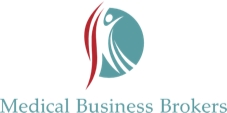So you’ve decided: the time has arrived to sell your medical practice. This is a significant milestone in any healthcare professional’s career. Whether you’re looking to retire, relocate, or pursue new opportunities, the process of selling your practice requires careful planning and execution. This comprehensive guide will walk you through the essential steps for how to sell a medical practice in Australia, ensuring you maximise value and achieve a smooth transition. From assessing your practice’s value to navigating legal considerations and ensuring a seamless exit, we will provide you with valuable insights to help you navigate each stage of the selling process.
Step-by-Step Guide on How to Sell a Medical Practice
Assessing the Value of Your Medical Practice
Before putting your practice on the market, it’s essential to have a clear understanding of its worth. Accurate valuation is crucial for setting realistic expectations and attracting serious buyers. Several factors contribute to the value of a medical practice:
- Practice profitability: This includes revenue streams, operating costs, and profit margins.
- Goodwill: The intangible assets of your practice, such as patient loyalty and reputation.
- Tangible assets: Equipment, inventory, and property (if owned).
- Location and market demand: The practice’s geographical location and local healthcare landscape.
- Patient base: The size and demographics of your patient list.
- Growth potential: Opportunities for expansion or increased revenue.
How much is a medical practice worth?
Valuation methods for medical practices typically include:
- Comparative Market-based approach: This compares your practice to similar practices that have recently sold in the market. This provides the most accurate and evidenced based method of deriving value which is used by experienced buyers and also financial lenders.
Experienced business brokers, such as Medical Business Brokers, can provide an objective assessment of your practice’s worth.
Preparing Your Practice for Sale
Proper preparation is key to attracting potential buyers and maximising your practice’s value. Here are essential steps to take:
- Clean up financial records: Ensure your financial statements are accurate, up-to-date, and professionally presented. This includes profit and loss statements, balance sheets, and tax returns for the past 3-5 years.
- Develop a realistic timeline: Selling a medical practice can take 6-12 months or longer. Plan accordingly and start preparations well in advance.
- Organise documentation: Compile all relevant documents, including lease agreements, employee contracts, and patient records (ensuring compliance with privacy regulations).
- Maintain confidentiality: Be discreet about your intentions to sell to avoid unsettling staff and patients. All potential buyers sign non-disclosure agreements.
- Address any legal or compliance issues: Ensure your practice is fully compliant with all relevant regulations and resolve any outstanding legal matters.
Marketing Your Medical Practice
Effective marketing is crucial for attracting qualified buyers and achieving the best possible sale price. Here are some strategies to consider:
- Leverage professional networks: Utilise industry contacts and professional associations to discreetly spread the word about your practice sale.
- Engage a business broker: Specialised brokers such as Medical Business Brokers have extensive networks and can market your practice while maintaining confidentiality.
- Craft a compelling practice profile: Develop a comprehensive information package that highlights your practice’s strengths, financial performance, and growth potential with benchmark comparisons against similar practice sales as evidence.
- Target the right audience: Identify potential buyers who align with your practice’s specialty and values. This might include younger doctors looking to establish themselves or larger healthcare groups seeking expansion.
- Use online platforms: List your practice on reputable medical practice sale websites and professional forums.
- Prepare for site visits: Ensure your practice is presentable and organise staff to handle potential buyer visits discreetly.
The Role of a Business Broker
Why Use a Business Broker?
So, why use a business broker? Well, engaging a specialised business broker like Medical Business Brokers can significantly streamline the selling process and potentially lead to a better outcome. Here are some key benefits:
- Expertise in practice valuation: Brokers and valuers have the knowledge and experience to accurately assess your practice’s worth.
- Extensive network: They can connect you with a wider pool of potential buyers.
- Confidentiality management: Brokers can market your practice without revealing sensitive information prematurely and use modern dataroom technology to keep your commercial information secure.
- Negotiation skills: Experienced brokers can help you navigate complex negotiations and potentially secure a better deal. As well as being able to justify the value of your practice using evidence of other similar sales.
- Time-saving: They handle much of the paperwork and coordination, allowing you to focus on running your practice.
Acquiring the services of a specialised business broker such as Medical Business Brokers has proven historically successful for many medical businesses in Australia, as these testimonials indicate.
Do I Need a Broker to Sell My Business?
While it’s possible to sell a medical practice independently, using a broker can be particularly beneficial in certain scenarios:
- Complex practices: If your practice involves multiple specialties or locations, a broker can help navigate the complexities.
- Time constraints: If you’re looking for a quick sale or have limited time to dedicate to the process, a broker can expedite the sale.
- Maximising value: For high-value practices, the potential increase in sale price often outweighs the broker’s commission.
- Maintaining confidentiality. By using a specialist medical broker, your own personal details and that of the practice will not be disclosed in the public domain.
Can I Sell My Business Without a Broker?
If you choose to sell independently, be prepared to handle the following:
- Valuation: Research comparable sales and consider hiring a professional valuer.
- Marketing: Develop a marketing strategy and create promotional materials.
- Buyer screening: Vet potential buyers and manage confidentiality.
- Negotiations: Be prepared to handle complex negotiations and due diligence requests.
- Running and managing a Due Diligence process.
- Legal and financial aspects: Engage appropriate professionals for legal and financial advice.
While selling independently can save on broker fees, it often requires significant time and effort. Consider seeking professional help if you encounter challenges or receive offers below your expectations.
Legal and Financial Considerations
Due Diligence
Preparing for due diligence is crucial. Buyers typically scrutinise:
- Financial health: Detailed financial statements, tax returns, and revenue projections.
- Compliance: Ensure all licences, accreditations, and certifications are up-to-date.
- Liabilities: Disclose any outstanding debts, legal issues, or potential risks.
- Patient demographics: Provide anonymised data on patient base and retention rates.
- Staff information: Employment contracts, payroll details, and any staff-related issues.
Consider creating a secure data room (physical or virtual) where potential buyers can review these documents under controlled conditions.
Negotiation and Sale Agreement
Key points to focus on during negotiations include:
- Purchase price and payment terms
- Assets included in the sale
- Non-compete clauses
- Transition period and handover process
- Warranties and indemnities
The sale agreement should clearly outline all agreed terms. It’s crucial to have this document reviewed by a lawyer experienced in medical practice sales.
Post-Sale Transition
A smooth transition is vital for the practice’s continued success and your professional reputation. Consider the following:
- Staff retention: Communicate openly with staff about the sale and any changes in employment terms.
- Patient communication: Develop a plan to inform patients about the change in ownership and introduce the new practitioner.
- Handover period: Agree on a transition period where you may need to stay on to ensure continuity of care and smooth handover of operations.
- Transfer of medical records: Ensure compliance with privacy laws when transferring patient records to the new owner.
Case Studies and Success Stories
Learning from real-life case studies of successful medical practice sales in Australia provides invaluable insights into the strategic considerations and best practices involved in such transactions. Take a look at these two practices whose sales were facilitated by Medical Business Brokers.
Case Study 1: Gold Coast Physiotherapy Practice
Practice fundamentals:
- Strong financial performance with $1.4M annual revenue
- Established 20-year history in prime location
- Diverse client base including sports teams and aged care facilities
- Well-equipped with modern technology
Lessons:
- Long-standing reputation and diverse client base add significant value
- Investment in modern equipment enhances practice appeal
Case Study 2: Melbourne Inner SE Suburbs Family Medical Practice
Practice fundamentals:
- Prime location in high socioeconomic area
- Well-established with 5 consult rooms and 8 GPs
- Mixed billing model (50% private fees)
- Accredited until 2025
- On-site pathology and treatment rooms
- Stable, profitable operation
Lessons:
- Importance of location and patient demographics
- Value of diverse revenue streams (mixed billing)
- Benefits of accreditation and modern facilities
- Significance of established staff and systems
- Advantage of seller’s willingness to assist post-sale
This practice demonstrates the key elements that make a medical business attractive to potential buyers: strong financials, strategic location, and a well-structured operation.
Preparing for a Successful Sale
Selling a medical practice is a complex process that requires careful planning, expert guidance, and attention to detail. By following the steps outlined in this guide, you can maximise the value of your practice and ensure a smooth transition for your staff and patients. If you’re considering selling your medical or allied health practice, don’t hesitate to reach out to Medical Business Brokers for a confidential discussion. Our team of experts can provide personalised guidance and support throughout the entire sale process, helping you achieve the best possible outcome.

